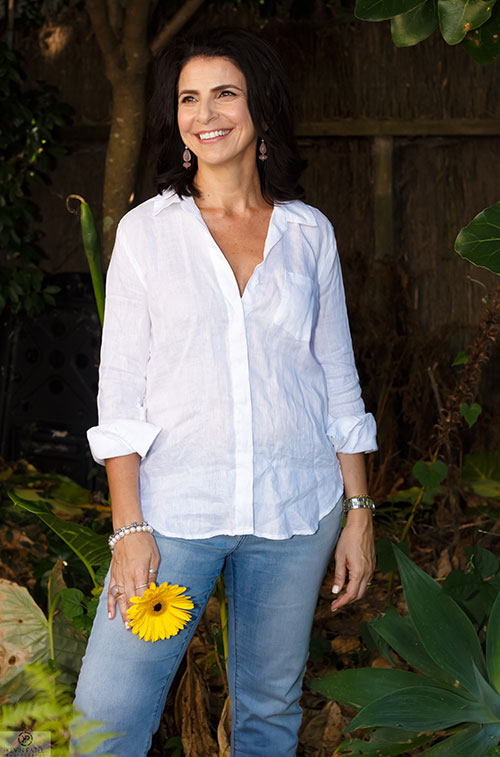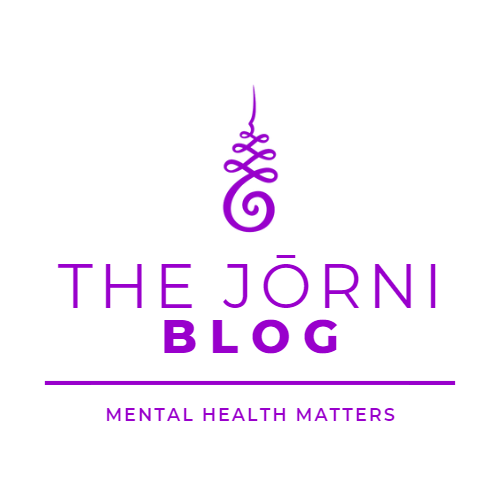The Hidden Battles Within
In the complex world of mental health, internal conflicts often lurk silently, yet they wield a significant influence over our lives. These conflicts, hidden beneath the surface, form a complex web of emotions, thoughts, and beliefs, leading to deep-seated inner discord. This internal strife subtly permeates our everyday experiences, affecting how we interact with others, the decisions we make, and even how we view ourselves. Our exploration into this topic aims to demystify these internal battles, shedding light on their impact and offering pathways toward resolution.
These internal conflicts represent more than fleeting moments of indecision; they are profound struggles that can steer the direction of our lives. Rooted in the contradictions among our beliefs, emotional reactions, and personal experiences, they often lead us into a labyrinth of uncertainty and discomfort. Such conflicts can profoundly disturb our sense of wellbeing and peace, impacting not just our mental health but also the overall quality of our lives.
Understanding these conflicts is crucial, as they are integral to our psychological makeup. They challenge us to confront and reconcile various aspects of our psyche, leading to growth and self-awareness. Recognizing and addressing these conflicts is key to personal development and essential for achieving a harmonious and balanced mental state. This journey of internal exploration and conflict resolution is fundamental to navigating the complexities of mental health and achieving a sense of true self-fulfillment.
“The question is not, do you have conflicts? The real question is, are you aware of your conflicts?"
- Abhijit Naskar
Turning Turmoil into Triumph
Faye Lawand stands out as a transformative figure in mental health, known for her unique approach to resolving internal conflicts and guiding individuals towards serenity and balance. Her personal story is one of resilience, having navigated through three intense burnouts and converting these experiences into a profound understanding of mental wellness. Having lived in 13 countries, including the Middle East, Faye's diverse life experiences have given her a deep insight into the universal nature of stress and burnout.

More than her personal experiences, Faye's professional expertise as a Trauma-Informed Clinical Hypnotherapist and Stress Response Regulation Expert sets her apart. She employs evidence-based methods that transcend traditional therapies, focusing on practical strategies for overcoming mental challenges. Faye's ambition extends beyond individual healing; she's dedicated to making the world a kinder, happier place. Her 3-step Mental Health Blueprint™ is a testament to this, offering a pathway to inner peace and mental empowerment, aiming to improve wellbeing on both an individual and collective level.
The Complexity of Internal Conflicts
Navigating the labyrinth of internal conflicts is an essential aspect of understanding human psychology. These conflicts are far from superficial dilemmas. They represent the deeper, often unspoken struggles that reside within us. They arise from the intricate interplay of our emotions, thoughts, and deeply held beliefs. This exploration seeks to unravel these complexities, shedding light on the underlying dynamics, the emotional and cognitive landscapes, and their broader impact on our behavior and relationships.
Understanding the Underlying Dynamics
Internal conflicts often emerge from a discord between our personal values, beliefs, and the realities we encounter. Triggered by various external events or internal changes, they create a feeling of being torn between different parts of our identity. Understanding these underlying dynamics is crucial for effectively addressing and resolving these conflicts. It helps in identifying the root causes and finding a path towards resolution.

The Emotional and Cognitive Landscape
The realm of internal conflicts is heavily influenced by our emotional and cognitive states. Disentangling the complex web of thoughts and emotions that contribute to these conflicts is a critical first step towards resolution. Acknowledging and understanding these mental and emotional patterns pave the way for a more harmonious inner life.
Exploring the Ripple Effects: Internal Conflicts in Behavior and Relationships
Internal conflicts have a profound impact that goes beyond our internal world, significantly influencing our behavior and relationships. These conflicts, when unresolved, can manifest in various aspects of our personal and professional lives, often in ways we might not immediately recognize. This section delves into understanding the tangible effects of these internal struggles and how they shape our interactions and connections with others.
Manifestations in Personal Behavior
Internal conflicts can subtly influence our daily actions and decisions, leading to behaviors that may seem inconsistent or irrational. These conflicts can cause us to react in ways that don't align with our usual character or values. For instance, they might lead to overreacting in certain situations, withdrawing from others, or engaging in self-sabotaging behaviors. Recognizing these patterns is the first step in understanding the influence of our inner conflicts on our actions.
Impact on Relationships
The repercussions of internal conflicts are perhaps most evident in our relationships. They can strain interactions with friends, family, and colleagues, sometimes leading to conflicts or misunderstandings. In some cases, these internal struggles might cause us to avoid certain situations or people, impacting our ability to maintain healthy and fulfilling relationships. Understanding how our internal conflicts affect our relationships is crucial for addressing and resolving these issues, and for fostering stronger, more positive connections.

Working Towards Healthier Dynamics
Acknowledging the impact of internal conflicts on our behavior and relationships is essential for initiating change and growth. By becoming aware of these influences, we can start to work towards healthier behavioral patterns and relational dynamics. This process involves self-reflection, possibly seeking support or guidance, and implementing strategies to better manage our emotions and reactions. The goal is to transform the way we interact with ourselves and others, leading to more harmonious and fulfilling relationships.
In essence, the exploration of how internal conflicts affect our behavior and relationships is a critical component of personal development. It offers insights into the profound ways our inner world shapes our outer experiences and provides a pathway towards more mindful, intentional, and positive interactions in all areas of our life.
Developing Strategies for Personal Growth Through Internal Conflicts
The journey of confronting and resolving internal conflicts offers a valuable opportunity for personal growth and development, far beyond just addressing immediate dilemmas. This section delves into the development of effective strategies aimed at resolving these conflicts, which involves fostering healthier thought patterns and emotional responses. The goal is to not only resolve existing conflicts but also to cultivate a mindset that can prevent future ones, thus contributing to a holistic development of the self.
Fostering Healthier Thought Patterns
One of the key strategies in resolving internal conflicts is to cultivate healthier thought patterns. This involves challenging and changing negative or unhelpful thinking that often fuels internal struggles. Techniques such as cognitive restructuring, mindfulness, and positive affirmations can be instrumental in this process. By learning to identify and alter destructive thoughts, individuals can start to view situations and conflicts from a more balanced and constructive perspective.

Enhancing Emotional Intelligence
Another vital strategy is enhancing emotional intelligence, which includes recognizing, understanding, and managing our emotions effectively. This aspect of personal growth is crucial in dealing with internal conflicts, as emotions often drive the core of these struggles. Developing skills such as emotional awareness, self-regulation, and empathy can significantly aid in navigating through and resolving internal conflicts. It also helps in building stronger, more empathetic relationships with others.
Preventing Future Conflicts
In addition to resolving current internal conflicts, these strategies play a crucial role in preventing future ones. By building a stronger foundation of self-awareness, emotional intelligence, and healthy thinking, individuals can become more adept at identifying potential conflicts before they escalate. This proactive approach not only enhances personal wellbeing but also contributes to more harmonious interactions in various aspects of life.
Through the understanding and application of these strategies, individuals can transform their approach to internal conflicts, turning them into opportunities for personal growth and self-improvement. This process is an integral part of achieving personal harmony, fostering healthy relationships, and leading a more fulfilling and balanced life. Ultimately, the journey of resolving internal conflicts is about evolving into a more self-aware, emotionally intelligent, and resilient individual, capable of navigating the complexities of life with greater ease and confidence.
Charting the Path to Inner Harmony
Achieving inner harmony is a journey that requires a comprehensive and introspective approach, intertwining the elements of self-discovery and self-compassion. This process is about more than just resolving surface-level conflicts; it's about delving deep into the self, understanding one's own emotions, thoughts, and behaviors, and learning to approach them with kindness and understanding. It's a journey that leads to mental clarity and emotional balance, essential components of a harmonious inner life.
Self-discovery is a key part of this journey. It involves exploring one's own beliefs, values, and the underlying causes of internal conflicts. This exploration is not always straightforward and can sometimes be challenging, as it requires facing uncomfortable truths and revisiting past experiences. However, it's through this process of introspection and understanding that one can begin to make meaningful changes and move towards a state of inner peace.

Equally important is the role of self-compassion in achieving inner harmony. It's about learning to be kind and forgiving to oneself, especially in times of conflict or distress. Self-compassion provides the emotional support needed to navigate through the process of self-discovery and conflict resolution. It allows individuals to accept themselves as they are, recognize their worth, and foster a positive and nurturing internal dialogue. Together, self-discovery and self-compassion form a powerful duo, guiding individuals towards a balanced and harmonious state of being.
The TAKEAWAY
Our exploration of internal conflicts brings us to a new understanding of mental health. It's not just about managing symptoms but about delving into the deeper layers of our psyche. This journey into our inner world is a profound process of self-discovery, revealing the intricate connections between our thoughts, emotions, and behaviors. It challenges us to confront and reconcile the disparate parts of ourselves, leading to a more integrated and authentic self.
In this process, we learn that resolving internal conflicts is not a destination but a continuous journey of growth and self-improvement. Every step taken towards understanding and managing these conflicts is a step towards a more fulfilled and harmonious life. It's about transforming our inner battles into opportunities for growth and self-empowerment.

Ultimately, the lessons we learn from addressing internal conflicts extend beyond individual wellbeing. They resonate in our relationships, our work, and our interactions with the world. By mastering our internal conflicts, we not only improve our own mental health. But also contribute to creating a more understanding and compassionate society. This journey, with all its challenges and rewards...
Is an essential part of our collective quest for mental wholeness and societal harmony.
https://thejornipodcast.com/episode-142-internal-conflicts-and-mental-health-with-faye-lawand

